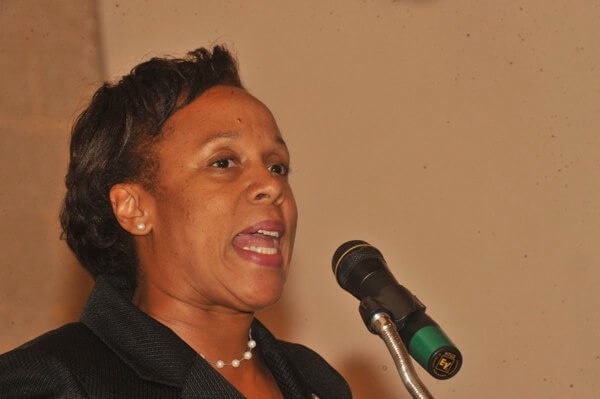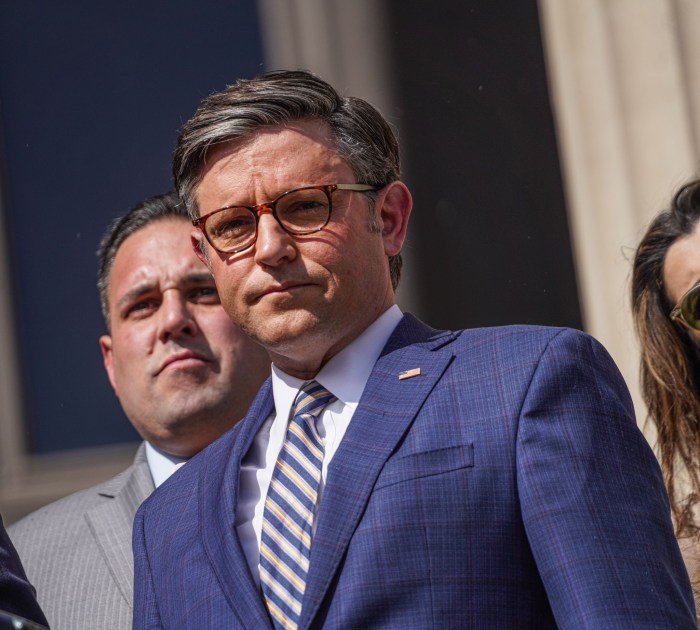By Naeisha Rose
Mayor Bill de Blasio’s proposal to change the method of how students are admitted to specialized high schools has sown division between Democrats from the northern and southern parts of Queens.
Eight of the nine elite high schools across the city in total only have a small percentage of black and Latino scholars in their institutions, which admit students based on one criterion: getting the highest scores on the Specialized High Schools Admissions Test.
Queens Science at York College — located at 94-50 159 St. in Jamaica — is the only specialized high school in Queens.
A ninth school, the Fiorella LaGuardia High School in Manhattan, has a far more diverse process, which involves auditions and academic records for the performing arts school, and according to data from 2015 to 2016 by U.S. News and World Report its student body consisted of 31 percent of black and Latino pupils.
State Assemblywoman Alicia Hyndman (D-Springfield Gardens) prepared an op-ed in support of the mayor’s plan .
As the parent of an 8-year-old girl who would start high school in 2024, the assemblywoman said she would be disheartened if a specialized school would reject her daughter Nyla solely on the basis of one test.
“I know that if Nyla does well enough on the Specialized High School exam, she can get into one of the nine elite New York City Specialized High Schools — and her life of academic success continues to be academically challenging while preparing her for college,” said Hyndman. “Unfortunately, if she isn’t successful at the exam, the schools will not look at any other factors besides her exam score.”
De Blasio wants to overhaul the admission process and proposed replacing the test by admitting students based on their middle school class rank, standardized test scores and by setting aside 20 percent of seats for low-income students who were just below the cutoff in the results.
“The Specialized High School Admissions Test isn’t just flawed — it’s a roadblock to justice, progress and academic excellence,” he said.
City Councilman Donovan Richards (D-Far Rockaway), who also covers southwest Queens, shared de Blasio’s sentiments.
“New York City has one of the most segregated school systems in the country, which has created an institutionalized disadvantage for students in lower-income areas,” Richards said. “One test should not be the sole factor that determines a student’s ability to succeed in a specialized high school.”
U.S. Rep. Grace Meng (D-Flushing), a parent of two young public school students and a graduate of a specialized high school, Stuyvesant High School in Manhattan, called the mayor’s decision “shortsighted” and implied that the real issue is the lack of quality elementary and middle schools.
“I agree with the mayor that diversity at the city’s specialized high schools needs to improve,” Meng said. “But community leaders and elected officials from all backgrounds must have their voices heard.”
Meng and state Sen. Toby Stavisky (D-Flushing), both representatives of northern Queens, suggested different solutions to diversify the student body in specialized schools.
“The mayor could have chosen to pursue the creation of additional specialized high schools to meet demand, he could have requested more resources from Albany for every single New York City elementary, middle and high school,” said Meng.
Stavisky recommended identifying gifted students at an early age as a way of fostering students into preparing for the specialized high schools.
“I have introduced legislation that would change the testing procedures for gifted and talented children entering third grade,” said Stavisky. “Instead of parents ‘opting in’ for their children taking the test, my bill would make it automatic, unless the parent ‘opts out.’ This would lead to more and more children, regardless of their socio-economic or racial background, having their academic potential being fully recognized.”
Reach reporter Naeisha Rose by e-mail at nrose































